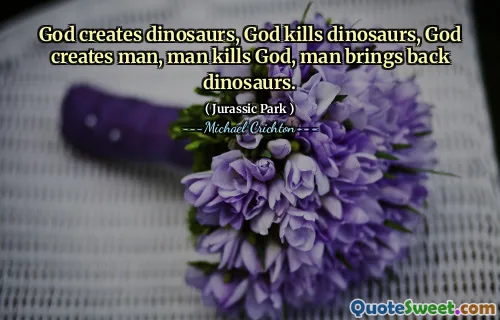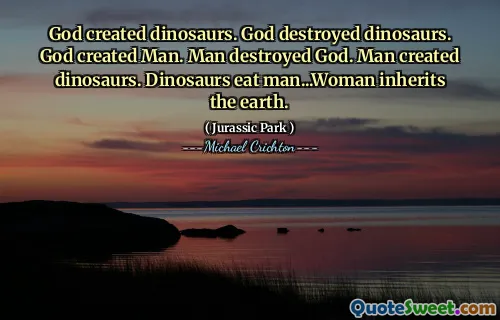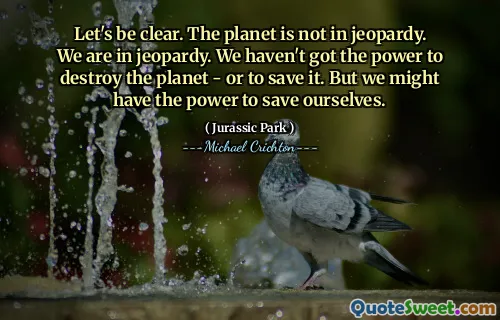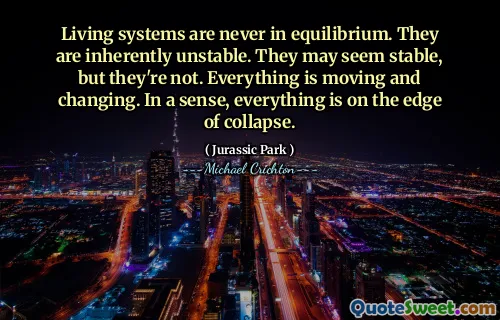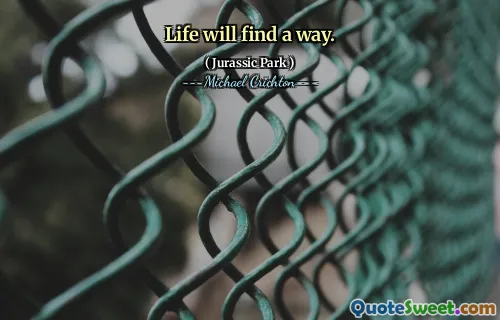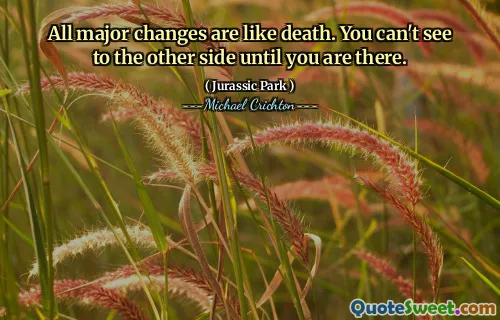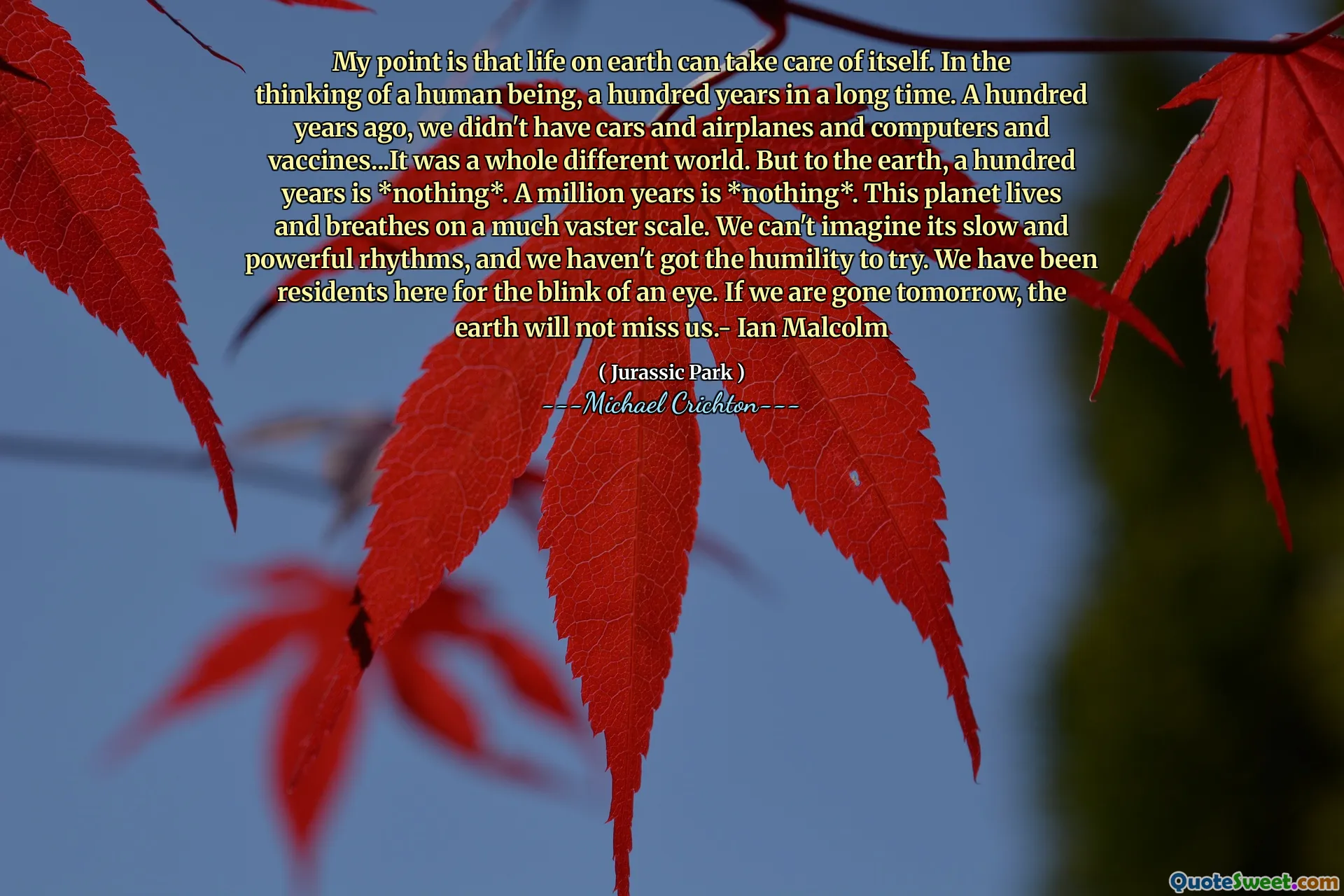
My point is that life on earth can take care of itself. In the thinking of a human being, a hundred years in a long time. A hundred years ago, we didn't have cars and airplanes and computers and vaccines...It was a whole different world. But to the earth, a hundred years is *nothing*. A million years is *nothing*. This planet lives and breathes on a much vaster scale. We can't imagine its slow and powerful rhythms, and we haven't got the humility to try. We have been residents here for the blink of an eye. If we are gone tomorrow, the earth will not miss us.- Ian Malcolm
Life on Earth has an inherent resilience that allows it to thrive independently. Humans may perceive time in a way that feels significant, believing a century to be substantial. However, for the planet, a hundred years is trivial. Technological advancements like cars, airplanes, and computers have emerged in just a century, yet Earth operates on a much grander timescale, rendering our existence but a brief moment in its vast history.
Ian Malcolm emphasizes our fleeting presence on this planet. The rhythms of Earth are slow and powerful, operating beyond human comprehension. While we have made an impact, our time here is negligible, and if humanity were to vanish, the Earth would continue without a second thought. This perspective encourages humility, acknowledging that we are merely temporary residents on a much older and more enduring planet.
